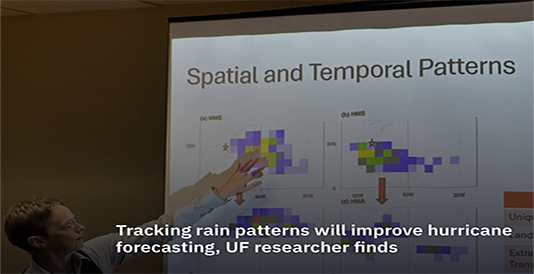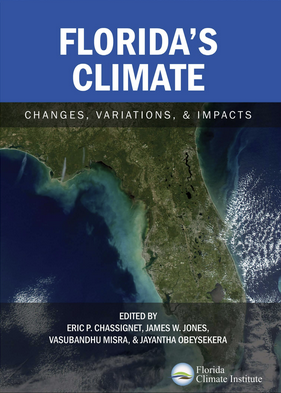Contact Person: Martinez, Christopher J.
Collaborators: R. Boyles, U. Hatch, J.L. Heitman, J.W. Jones, C. J. Martinez, C.H. Peacock, G. Wilkerson,
Institutions: North Carolina State University, University of Florida
Funding Agency: NOAA
Start: July 2009 End: June 2011
Status: Funded
Filed Under: Climate Sciences, Education, Extension, Water
Abstract: This project will explore the possibilities for using historical climate data and climate forecasts to help urban water managers assess future residential irrigation demands and implement strategies to reduce those demands. Specific objectives include: 1) obtain and analyze historical water usage data from city water managers in North Carolina and Florida; 2) investigate strategies for reducing irrigation water use in urban areas without adversely affecting turfgrass health; and 3) determine possible benefits of using one- to three-month climate forecasts to project potential water demands for residential lawns. City water managers in two North Carolina and two Florida cities have agreed to cooperate in this study. They will supply data which will be used to estimate per household irrigation water usage in recent years when water restrictions of different magnitudes were in place. This will serve as a baseline for comparison. Using historical climate data, available from NOAA, we will simulate alternative turfgrass irrigation strategies for residential lawns. We will assume that irrigation can occur under a variety of scenarios, including whenever needed, or limited by different types of restrictions. A daily drought index will be calculated for each simulated irrigation strategy. Optimal irrigation strategies which minimize water use, while keeping the drought index within acceptable limits, will be determined for each location, turfgrass, and season. We will generate and evaluate one- to three-month drought forecasts using a) ENSO phase, and b) Climate Prediction Center one- and three-month outlooks. Simulation results will be used to evaluate the potential contribution of improved irrigation methods in the overall portfolio of potential conservation and efficiency measures used by urban water systems. This project will characterize, and help reduce, climate-related risk and vulnerability faced by urban water managers as they make decisions. It will provide methodology and simulation and analysis tools which can be used to assess the effects of climate variability or climate change on residential irrigation demands in other locations and situations.
Contact Person: Martinez, Christopher J.
Collaborators: Martinez, C.
Institutions: University of Florida
Funding Agency: NOAA/SARP
Status: Funded
Filed Under: Climate Sciences, Water
Contact Person: Martin, Tim
Collaborators: H. Beck, S. Grunwald, T. Martin
Institutions: University of Florida
Funding Agency: Florida Energy Systems Consortium
Start: 2009 End: 2011
Status: Funded
Filed Under: Climate Sciences, Land
Contact Person: Grunwald, Sabine
Collaborators: T. Martin
Institutions: University of Florida
Funding Agency: National Institute for Climatic Change Research
Status: Funded
Filed Under: Climate Sciences, Land
Abstract: Rising CO2 emissions in the atmosphere and effects on global climate change have been well documented, and future impacts are uncertain but potentially devastating. Florida's natural and agro-forest ecosystems have much potential to sequester carbon in biomass and soils due to unique climatic and landscape conditions. However, research gaps exist to accurately assess carbon pools and fluxes at coarse scales, ranging from county to the region and larger. The overarching objective of this project is to address these obstacles by creating a database infrastructure for the carbon science community, focused on ecosystems in Florida and the southeastern United States. The database will be administered through the UF Carbon Resources Science Center, a multi-disciplinary Center dedicated to research in support of enhanced agricultural and natural resource carbon management. In addition to applied research, basic research remains necessary to quantify carbon pools and fluxes for many ecosystems, and to understand how perturbations such as land use change or climatic factors impact carbon balance.
Contact Person: Martin, Tim
Institutions: University of Florida
Funding Agency: UF IFAS Dean for Research
Status: Funded
Filed Under: Climate Sciences, Land
Opportunities
Funding
- Resilience: Vulnerability and resilience management for socio-environmental systems in exposed territories | October 17, 2025 (Pre-Proposals)
- NSF Atmosphere Cluster (AGS-AC) | ongoing
- NSF Geospace Cluster (AGS-GC) | ongoing
- Duke Energy Foundation | Ongoing

















